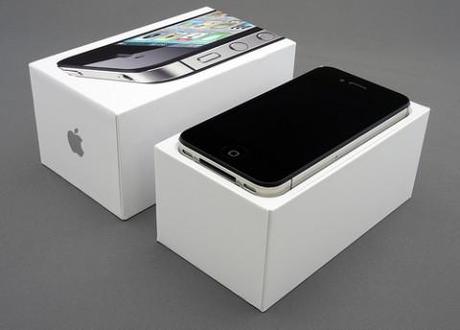
iPhone 4s. Photo credit: Brett Jordan http://flic.kr/p/awByzb
Influential US radio show This American Life has retracted a programme critical of working conditions in a Chinese factory making Apple devices. The original show – Mr Daisey and the Apple Factory – broadcast hard-hitting extracts of performer and prominent Apple critic Mike Daisey’s account of a visit to the plant, run by Foxconn. It turned heads because it painted a very grim picture of Apple’s working practices and production methods. But the show’s Chicago-based producers now say they have learned that Daisey’s monolog “contained numerous fabrications.”
According to the red-faced This American Life producers, who, to their credit, have fessed up to the inaccuracies, Daisey misled the programme’s editors and fact-checkers about the nature of his visit to China and what he had seen with his own eyes. Crucially, he’d made it impossible for them to contact the interpreter he’d taken with him on trips to the factories, claiming he had no way to reach her, reported the BBC.
The radio show, which has been widely considered to be a PR disaster for Apple, became This American Life‘s most popular podcast. It hit 888,000 downloads and was streamed 206,000 times. The broadcast was followed by a series of separately researched articles in the New York Times looking at Apple’s working practices and production methods. Faced with all this scrutiny of its manufacturing practices, Apple announced that for the first time it will allow an outside third party to audit working conditions at those factories and – for the first time ever – it released a list of its suppliers.
Large falsehoods. The show revealed the inaccuracies in a mea culpa blog: “Some of the falsehoods found in Daisey’s monolog are small ones: the number of factories Daisey visited in China, for instance, and the number of workers he spoke with. Others are large. In his monolog he claims to have met a group of workers who were poisoned on an iPhone assembly line by a chemical called n-hexane. Apple’s audits of its suppliers show that an incident like this occurred in a factory in China, but the factory wasn’t located in Shenzhen, where Daisey visited.”
“Daisey lied to me and to This American Life producer Brian Redd during the fact-checking we did on the story, before it was broadcast,” wrote show host Ira Glass in a personal blog post. “That doesn’t excuse the fact that we never should’ve put this on the air. In the end, this was our mistake.”
Daisey: It’s only kinda my fault. Daisey has admitted he made up and embellished certain details to get his point across but he has has accused the producers of unfair editing. In a personal blog post picked up by CNET, he exclaimed: “Four hours of grilling edited down to fifteen minutes. I thought the dead air was a nice touch, and finishing the episode with audio pulled out of context from my performance was masterful.”
Fu*k you, Mike Daisey. Adrien Chen of Gawker revealed he, like the show’s producers, “was duped by Mike Daisey’s lies.” Last October, Chen presented Daisey with some of his own suspicions about Daisey’s explosive claims but was left “dazzled” by “rehearsed bullshit.” “Throughout our interview, he’d been so convincing; his lies were so detailed and full of compassion and humor. And now I wondered why I was wasting my time trying to poke holes in his facts when I should be writing about the awful things he saw. We talked for a bit more and he invited me to his show. I went, and dropped the story,” lamented Chen, who listed the damage Daisey has done: “he debased anyone who actually cared about the true injustice of Apple’s manufacturing process. Daisey’s lies hurt labor organizations like SACOM bygiving their critics ammunition to ignore their real complaints. He cynically warped the stories of Chinese workers to promote his campaign, and trivialized the work of journalists who actually do real reporting on the issue.” Chen revealed that, “when I emailed him for an explanation after news about the retraction broke, he responded: ‘Adrian, this isn’t about me lying to you or anyone else. This is about me doing everything I could to get the media to pay attention to an issue that had previously been ignored but that now, thank goodness, has been properly covered and verified. Did I go too far in that effort? Maybe. That’s for others to judge.’ OK. Let’s judge: Fu*k you, Mike Daisey.”
What this tells us about journalism. “So what should we conclude from this whole sorry saga?” wondered Rory Cellan Jones of the BBC. “That there was nothing worth investigating about working conditions in China? I don’t think so. The professional journalists at the New York Times mounted their own inquiry into how those iPads and iPhones are made, uncovering some worrying issues … “ “The bigger question is what we’ve learned about journalism in the age of what the writer Andrew Keen has called the ‘cult of the amateur’. I believe the whole affair has reinforced the value of journalism as a profession,” argued Cellan Jones. “Because it was professional journalists at This American Life who uncovered the truth about their own programme, and professional editors who had the courage and integrity to make a very public admission of their errors. Mike Daisey was not completely wide of the mark in his criticism of technology journalists – there is a real danger for any specialist in being too close to an industry. But he has done a lot of damage to the idea that anyone with a bit of passion and a flair for language can be a reporter.”

